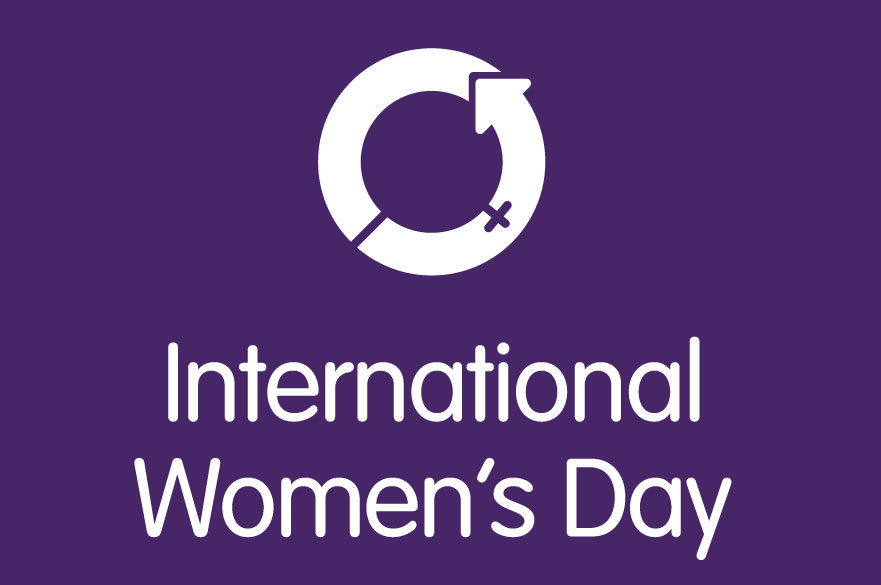#IWD2021: Creative Women Profile - Halima Cassell MBE
05 March 2021
To celebrate International Women's Day on 8th March 2021, we're doing a series of feature interviews with pioneering and trailblazing women working in creative fields, with a connection to Lancashire. Meet Halima Cassell, award-winning, world-renowned sculptor who grew up in Blackburn.

International Women's Day, which takes place on 8th March 2021, has been honouring women since 1911. This year's theme for IWD 2021 is #ChooseToChallenge. It's a global call to celebrate women's achievements, raise awareness against bias, and encourage us all to take action for equality, so that we can forge a gender-equal world.
You can find links to all our feature interviews for #IWD2021 here.
Halima Cassell, was born in Pakistan and raised in Blackburn. She later moved to Shropshire where now she works from a home studio. Halima studied at Blackburn College and Preston Polytechnic (now UCLan), and has recently done a large frieze artwork for UCLan's new campus development project.
Well known for her stunning, large-scale carved pieces influenced by her Asian roots, her passion for architectural geometry, and her fascination with African pattern work, Halima and her work have travelled the world. This year she was recognised for outstanding achievements on the Queen's New Years Honours List.
Jenny Rutter, Chair of Creative Lancashire and Co-Director of Super Slow Way, interviewed Halima for our IWD profile series.
They talked about the early influences on Halima's work and the role which strong women artists have played in her own creative journey. For Halima, family life is very important and she shares her own challenges around balancing motherhood with pursuing a prominent creative career.
So much of Lancashire's rich culture is hidden in plain sight, though we're starting to see it emerge in people's creative practices. Halima is one of the great success stories of Lancashire, as a creative practitioner that's gone out there with this beautifully unique practice that is so visibly her, but which does speak to that cultural background. - JENNY RUTTER
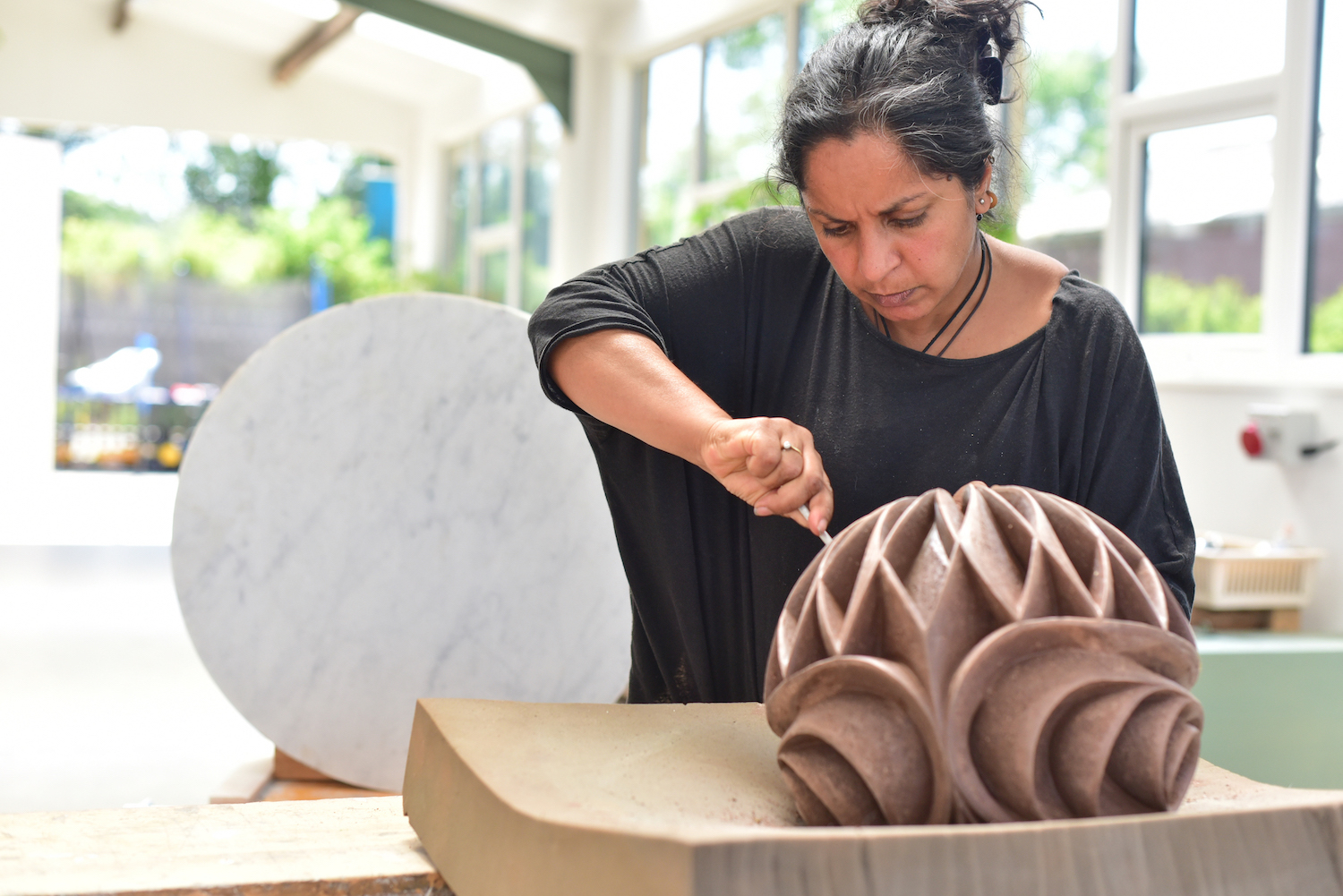
JR: Halima, would you describe yourself as a sculptor or as a craftsperson? Or would you say you're a bit of all of those things?
I would say that any hands on, long process of working has a craft element to it, but that's always been a difficult question. Are you a sculptor or an artist? I don't tend to get too bogged down by all of that, but because I carve and I chisel, I would have to say I'm a sculptor. A lot of the processes you use in sculpting can be seen as craft, and it's kind of a slow process. In some groups I'm classified as an artist, and in some groups as a potter, because I work with clay a lot, but I would say I'm a sculptor.
JR: What inspired you to use materials in the way that you do?
I think my rich heritage of visual artistry, textiles and beautiful jewellry, the visual side of it, has played a strong role. And being brought up in the North West, in Lancashire and in Manchester, and being so close to Liverpool. Looking at all the beautiful architecture and all the intricate buildings, the carved and moulded terracotta structures and stone structures within the buildings. For instance, the John Rylands Library in Manchester has always been one of my favourites.
I've always enjoyed looking at and constructing things in 3D, looking at public forms and mathematical formations within the plans. And that has always been brought into the way I work. I think the simplest way of saying it is, maths and art were my favourite subjects and anything which had that kind of integration in it, is an inspiration within my work.
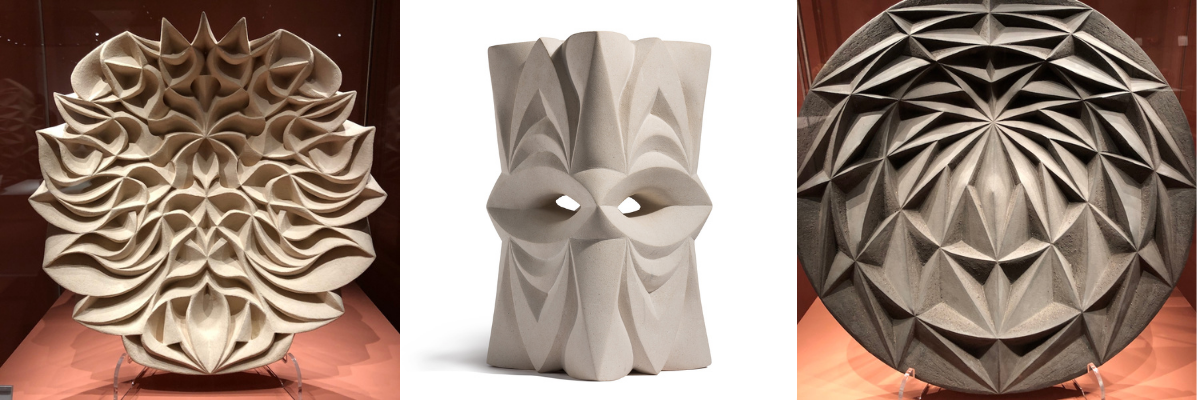
JR: Tell us more about your relationship with Lancashire, and the influence that Lancashire has had on you and your career?
It started off with school in Blackburn. It was my art teacher, he was amazing and very influential in those early stages. So I have a great connection to Blackburn with my school teacher. And I had a great time at UCLan and Blackburn College. All through that period, I was working within various establishments and doing workshops in schools and within community arts and mental health. So, that whole creative process, and building a career around the creative industry began, and was inspired, whilst I was in Lancashire.
There's a sense of connectivity and friendliness here, which I don't find in places like London. It's just a much friendlier and more close knit kind of community. I like the rich mix of cultural diversity in Lancashire too. I love that kind of variety of integration and influence.
I think having that kind of strong Asian and Western upbringing, has had a dramatic impact on my work, whether it be the Neo Gothic churches and cathedrals, or the mosques and synagogues in Manchester and Blackburn. Culturally, people see both sides of that in my work.
There were a lot of amazing industries in and around Blackburn, such as Shaws of Darwen, Clinton Brick, the cement factory in Clitheroe and Graham & Brown. Some of these companies trade worldwide. They are the backbone, or as you said Jenny, the heart of Lancashire. Having all these different places within the Lancashire area, not necessarily to do with the creative industry, but being able to tap into those industries whilst I was developing my career was important as well.
To me, it's where I developed as a person, as a creative person. So, it will always be a part of me. I think of myself as a free spirit, as someone who had this whole world open to them, and it was in Lancashire.
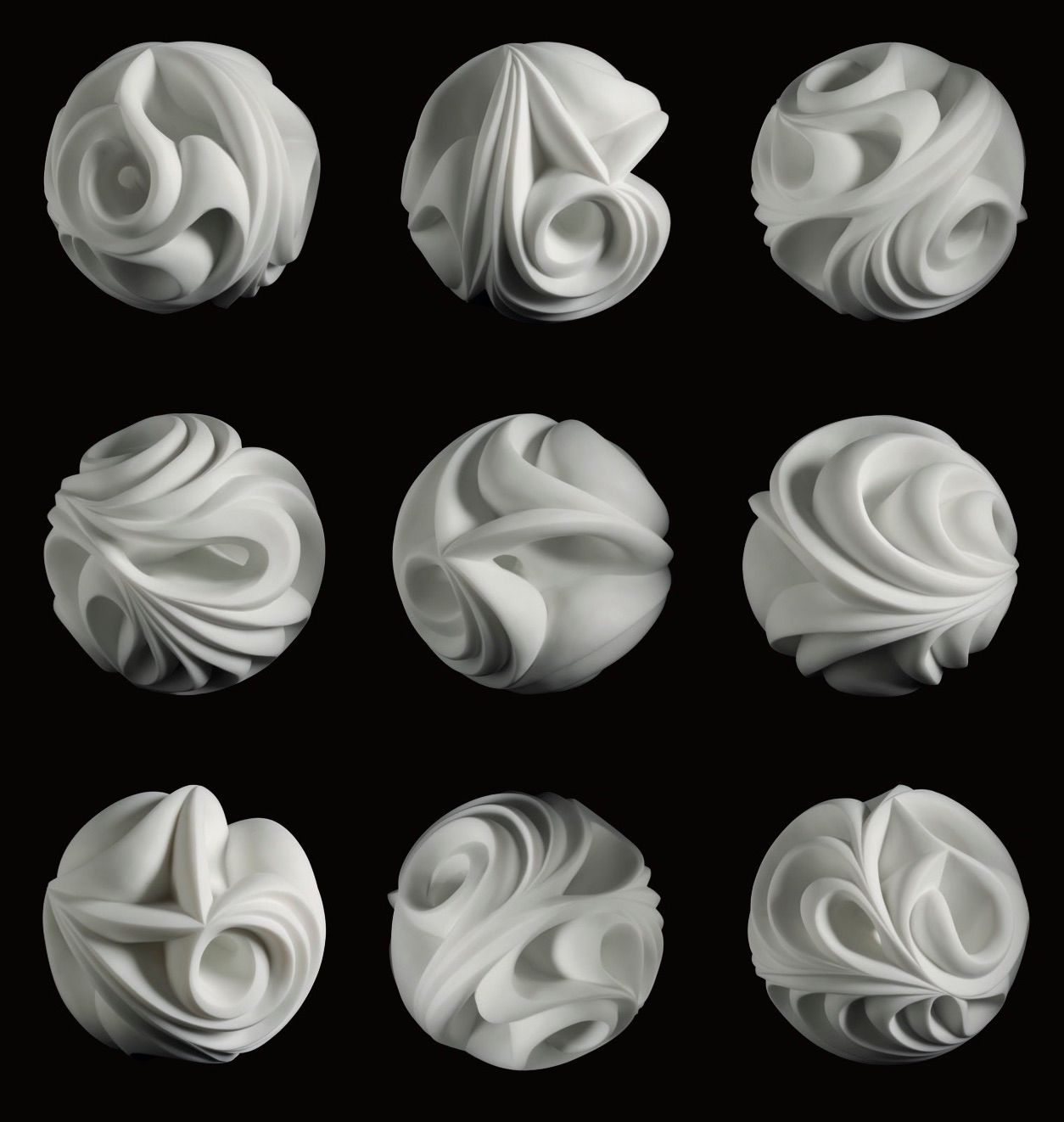
JR: Tell us about your creative practice and working in the creative industries. What do you love about it and what keeps you going?
For me, working with creatives, museum and gallery staff, and other like-minded people, is always important. Working in the creative industry was a natural progression. It's probably the only direction I would have taken. I love people and I love working in a creative, dynamic way, and so I have done a lot of community artwork.
I also like being my own boss. It sounds great, but you have to be really self motivated, and you've got to be able to re-light your fire through research and travel. Over the years in Blackburn, I did a residency in Italy and I went to Japan. In Knowsley, I did a research project on concrete. I was learning new things all the time.
I think within the creative industry, there's so much breadth of directions you can go in and work in. And just because you work in one area, say as a sculptor, there's so many ways to work in a creative way. For me, working in the creative industry is working with like-minded people and working in what I call an uplifting kind of career. When people do creative things, you're working with that energy within, instead of having a very static job. I'm very lucky to be working within that area.
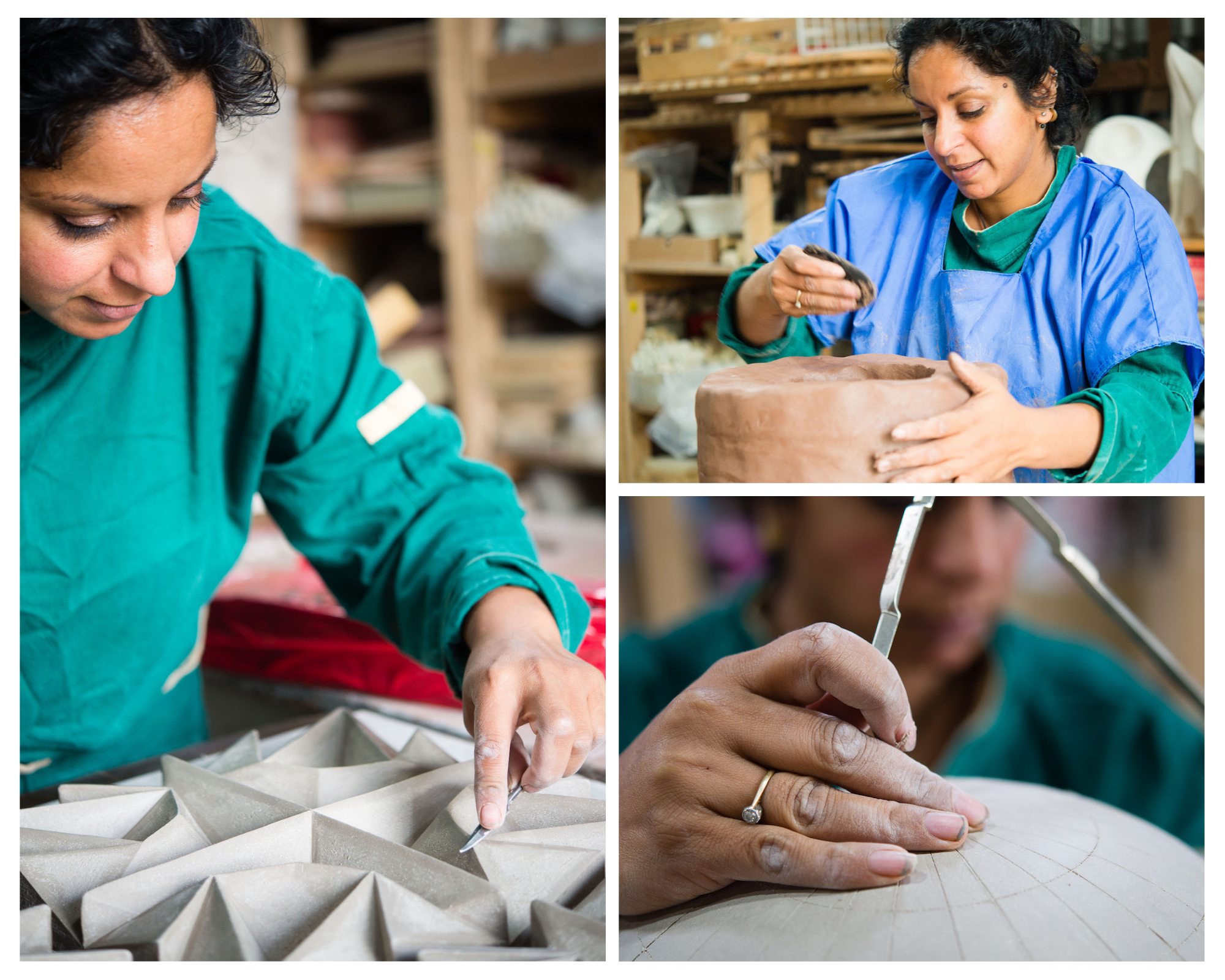
JR: That's the difference, when you're working as a creative. There isn't that same separation between life and work. It's you and it's how you express who you are. It's everything, isn't it?
Yeah, some people work within certain jobs and have a lot more life outside of work, and then weekends, evenings and holidays, become their kind of creative springboard. For me, I don't have many weekends off, it's always about my work. So, there are pluses and negatives on both sides, but I love my line of work. So I'm very lucky.
When you've got a young family, you want to be a good parent. So you look for the best solution for that, and having a studio next to my house was the most important thing. It's so important for me to be able to have a work life and family life which are integrated, and when we decided to move, that was our main concern. We first looked around Lancashire, and then further afield, and finally settled on Shropshire.
I work odd hours. And when I was working in a studio away from home, I wasn't getting back home until four o'clock in the morning. I'd give my little one a kiss and cuddle in the morning before my partner dropped him at nursery, but then I wouldn't see him regularly. So I wasn't getting that quality time. Now, I can be working, but I'm surrounded with them during the weekend and evenings and until they go to bed they are playing in the studio. So now I don't feel apart from them.
I don't get to do all the things I'd like to do with my children, but the most important thing is I see them and I'm interacting with them, and my partner, he has a big part in making that happen. Being a team with your partner and being a team within the family, and also maintaining that kind of connection within the creative industry is important. Everything you do, whether it's being a parent or being creative, working creatively, everything's absorbing, and it's about not having any guilt about stuff like that.
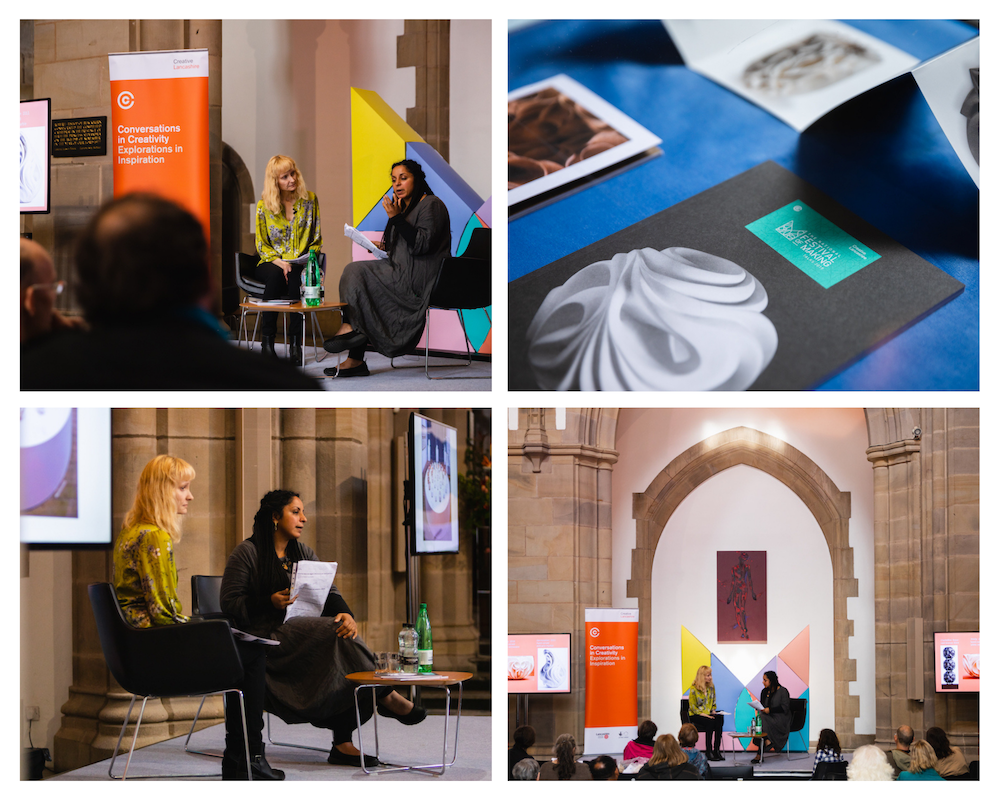
JR: How have the events of the last 12 months affected your way of working? (e.g. Black Lives Matter, Covid, Brexit, etc).
Growing up in Lancashire, I was immersed in diverse multi-cultural events, so I don't see colour in the same way others might, but there are lots of places where there isn't that kind of mix of cultures.
I think it's really important for children to see that where we are today is not just because of the people around us. It's also our history. Over hundreds of years people have given up their lives and have worked really hard for this kind of equality. Where we are now, we are very lucky to be living in a more integrated way.
I like freedom and the freedom that travel gives you, it helps us see that despite all those different cultures, we're all so close together. I travel a lot for exhibitions and seeing friends abroad and people I've met and showed with in different creative events. I also get materials from Italy, such as marble, and due to Brexit and Covid, that kind of material buying hasn't happened as much, or at all. For me, these are the big impacts, and will continue to be in the next few years when exhibitions are happening abroad.
I know COVID has been really difficult socially and mentally for many people. Aside from that though, there's been some positives as well, as you come to realise how important your local community is. Having to stay in your local area, and only being able to walk, you get a sense of where you're living as well.
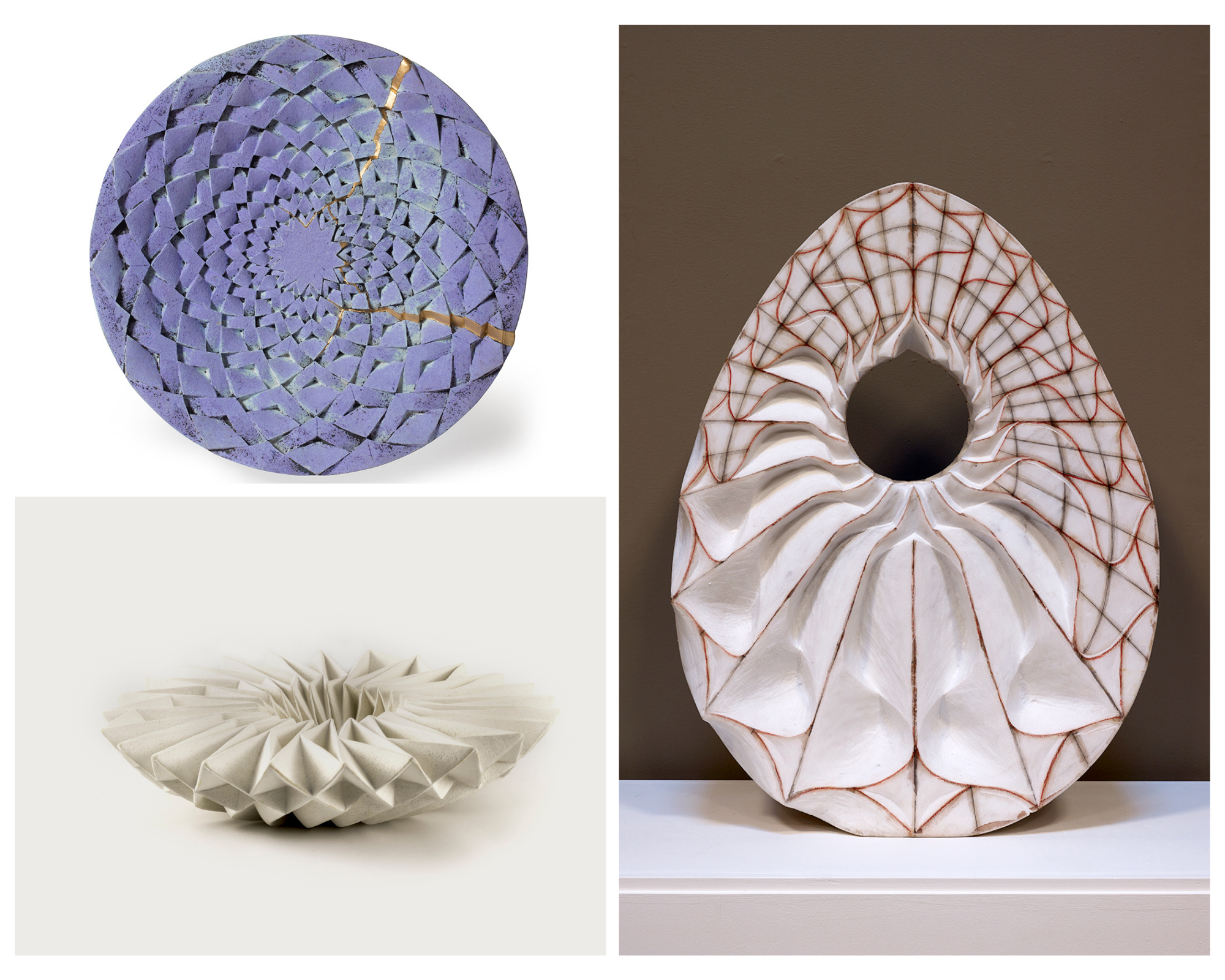
JR: What role women have played in helping you to develop your career?
I've always loved Barbara Hepworth. In 2007/08, I had time to research her and her practice and went down to St Ives. This was before the Hepworth was built in Wakefield. I've always loved her work because she was a mother and working to that level, in an era where it was a mans' world. She was raising a family whilst making monumental, important art within that kind of constrained social and political environment.
The painter, Bridget Riley, another British artist, was also a big influence. There are so many other female artists who have inspired my work along the way.
It's nice to listen to stories of women working within the creative industry. I had a lovely friend from Kendall Millport way, who passed away a year ago, and it was fascinating hearing her stories, of being an artist and creative woman in the 70s and 80s. The things she had to do to fit into that kind of circle, such as taking elocution lessons to soften her Lancastrian accent. I think sometimes, there's that kind of status within the art world and all the issues associated with cultural diversity, feminism or ageism. I personally don't get too bogged down with it, because I think for me, just being able to make has always been my dream.
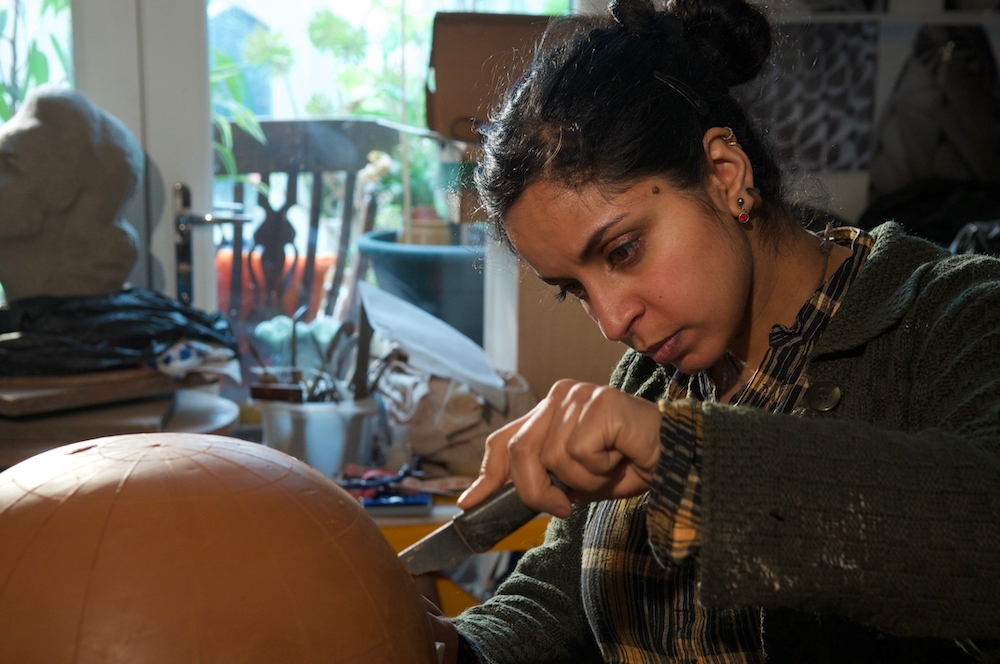
JR: Any advice for women who want to start a career in the creative industries?
Trying to be true to yourself is the most important thing. In doing anything creative, whether it's music or writing, or poetry, or visual arts, it's about being true to what you're doing.
I like the idea of being inspirational to women in the sense of talking about the journey of working really hard, and really slowly and, not being too bogged down with all the let downs. We may think, we've not gone to 'this' university, we've not done 'this', or not come from 'this' background, but all of that stuff is going to come one way or the other. It's about not letting that affect your creative thinking or your creative being.
There's always going to be prejudice, there's always going to be people looking down on this and that. And no matter what walk of life you come from, being in the creative industry, in TV and film, music, or the visual arts, you have to carry on. It's not an easy ride. Like any kind of creative work, you have to be constantly pushing yourself.
A lot of students ask me how do you develop your style. I didn't go out to develop myself, the only thing I can say is that I didn't try and follow another path. It wasn't about what was in fashion that I should be doing, or what was selling at the time. I followed a path that was true to me. It was a journey, and that kind of style of working came through that journey, rather than saying up front, that's what I want to do. It wasn't something that I planned, it was a journey that I went through. I think with anything creative, it has to be a journey.
Also, it's really important, if you're thinking about any kind of career, to work within your means. There's this idea that you have to have some kind of expensive setup or equipment to be working within a certain industry. But when you're starting out, work within your means. I was working with clay for many years before I got a kiln.
I remember when I lived in Blackburn, applying for the Craft Council development grant, and they couldn't believe I'd been working so long in clay, without having my own kiln. I used other people's kilns, I did free workshops, I did free talks within schools. And for that, in return, I got to use the kiln. So there are lots of different ways of doing it. You could be lucky and have a big art agent or organisation pick you up, but having a slow, steady journey was important for me, because I learned and developed a lot about myself and about where I wanted to be and what I wanted to do.
I've got a book coming out this year, which is about 25 years of me carving into material, and the journey and influences on that work. Blackburn Museum should be selling them. It includes the stories of me working in my one bedroom flat in Blackburn, and the pieces like the Hepworth commission, and the V&A piece, the Walker Gallery museum piece, all those pieces were made in this one tiny little flat. In that part of the book I was trying to say to people, you don't need this massive studio, you don't need all this expensive equipment, they are nice to haves.
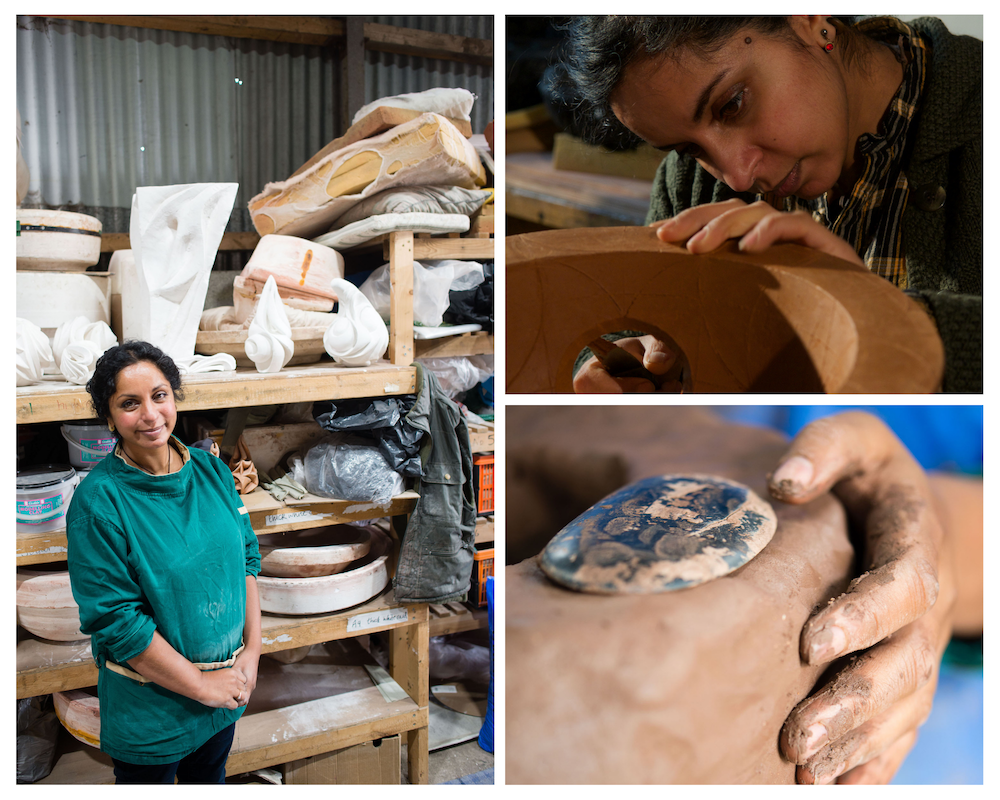
JR: The theme for IWD2021 is #ChooseToChallenge. How are you helping to forge a gender equal world? What issues are you choosing to challenge in a creative way this year?
I work in foundries using heavy duty materials and dangerous tools like chainsaws, which are associated with males, so I'm already challenging gender roles in that way.
In other industries, there may be more gender equality, but within the creative industry I don't think there's much. I think the biggest challenge for a lot of women is raising a family whilst pursuing a creative career. To be able to be a mom and work full time and not feel guilty about it. If I could be a role model in any way, it would be in my actions, that I moved to where we now live because I wanted to be able to see my children more regularly during the day.
I think last year was a bit of a shock for all of us in the way we ended up living our lives and working. This year, I'd like to try and get everything back on a new level of what it was, with having the time to think, and having the opportunity to reassess what I'm doing. And to think about what's important as well. I think that's never been what would have come out of this last year, but it's what is now important as well.
A big thank you to Halima Cassell and Jenny Rutter for participating in our Creative Women profile series for IWD. We leave you with inspiring words from both of them about activism and challenging the status quo.
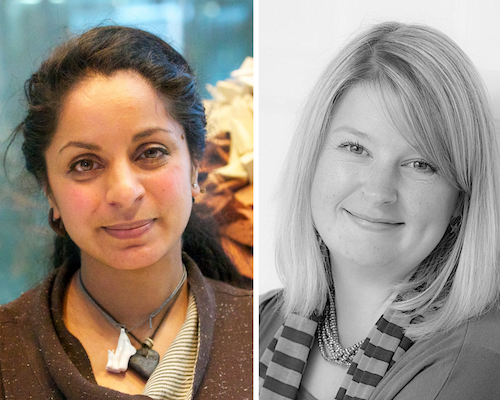
There's always going to be prejudice, there's always going to be people looking down on this and that. And no matter what walk of life you come from, being in the creative industry, in TV and film, music, or the visual arts, you have to carry on. It's not an easy ride. Like any kind of creative work, you have to be constantly pushing yourself. - HALIMA CASSELL
We see huge improvements in gender equality in our world, with legislation and so forth, but there's still so much hidden inequality, across women's issues, that isn't being addressed. Also, a lot of the time as women, we think we've got to have a really obvious and visible cause that we're flying a flag for. Sometimes just the doing of the day job, and getting it done in the way that we need to do it, is cause enough. - JENNY RUTTER
Find out more about Halima and her work here:
Image credits: Heni Schneebeli, Chris Smart, Ben Boswell, Mich Bondesio and Richard Tymon.
Look out for more profiles featuring creative women from or connected to the county in articles throughout this week on our news page.
About International Women's Day - March 8, 2021
International Women's Day is a global day celebrating the social, economic, cultural and political achievements of women. The day also marks a call to action for accelerating gender parity. Significant activity is witnessed worldwide as groups come together to celebrate women's achievements or rally for women's equality. internationalwomensday.com
